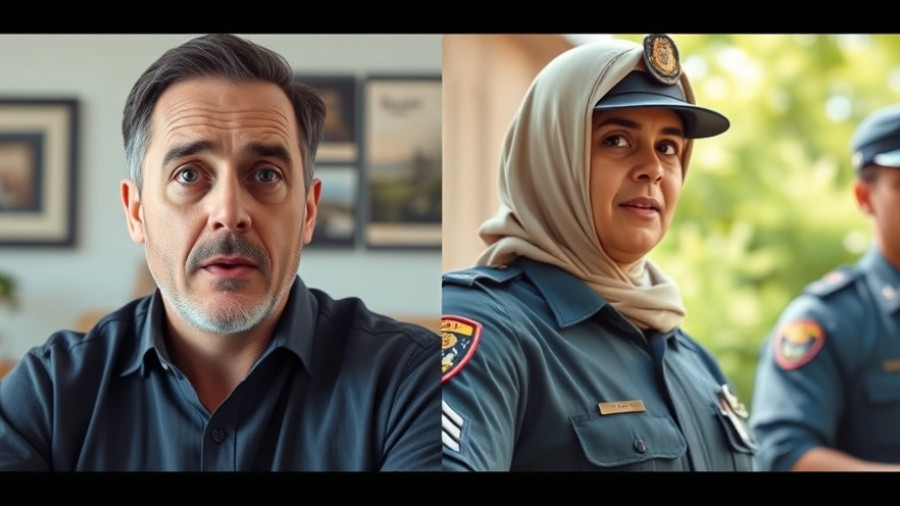
The Complexities of Law Enforcement and Civil Rights
In today's world, police interactions can easily escalate, raising important questions about civil rights and government authority. An exclusive video update sheds light on a recent legal case that specifically highlights the problematic nature of police seizures and property rights. The video outlines a situation where a mother's daughter had her phone seized by the police during an investigation tied to a social media post. While the video offers a narrative about the case, it also serves as a cautionary tale about how officers can sometimes misunderstand their own powers during investigations.
In the latest discussion featured in EXCLUSIVE Update & Behind The Scenes, the complexities of police powers and civil rights are examined, prompting us to delve deeper into the implications of these issues.
Understanding the Strange World of Police Powers
The basis for many police actions often stems from long-established legal instruments like the Police and Criminal Evidence Act (PACE). However, the case discussed in the video challenges the boundaries of these powers, particularly regarding police entry into private homes. According to the video's creator, the officers justified their entry under section 17 of PACE, claiming it was necessary to locate the daughter and her phone. Yet, the argument stands that the police cannot legally enter a property simply for investigatory purposes without clear justification, raising questions about potential trespass and violation of constitutional rights.
The Emotional Toll of Police Missteps
The emotional impact of having personal property seized is significant, especially for the family involved in this case. The mother expressed frustration not only at the seizure itself but at the subsequent misinformation and the mishandling of the phone’s return. The month-long delay in recovering a personal item that contains sensitive information illustrates the systemic challenges faced when police actions go awry. Such experiences can lead to public distrust, making it increasingly important for individuals to understand their rights in similar situations.
Lessons for Families Facing Potential Police Interactions
This case serves as a vital reminder for individuals and families navigating their rights when police visit their homes. Awareness and preparedness can empower citizens to advocate for themselves under pressure. Knowing that one can rescind permission for police to enter their home can protect against unintended consequences. This knowledge could exceedingly diminish the probability of a situation escalating into one where property is unlawfully seized.
A Call for Transparently Tracking Police Procedures
One of the most glaring insights from this case is the apparent lack of procedural transparency surrounding the seizure and return of property. In the video, concerns were raised about the absence of paperwork when the police initially took the phone, signaling that procedural lapses are not just theoretical worries but practical realities faced by families. A push for better tracking systems within police departments could help prevent future mishaps involving private property.
Challenging Misinformation in Police Reporting
With the prevalence of misinformation about police actions often leading to public outcry, researchers have highlighted the importance of clear and accurate communication. Reports suggest that the police issued somewhat misleading statements to clarify their actions regarding this case, leading to further confusion. Transparency and accountability are key expectations from law enforcement, and enhancing communication strategies will not only educate the community but also instill trust.
Final Thoughts: Navigating Through The Current Law Enforcement Landscape
The complexities surrounding police powers, civil rights, and public trust require ongoing discourse. Families need to be vigilant and proactive in understanding their rights. This case is an essential lens through which to examine how police practices can be improved and how citizens can effectively engage with law enforcement, ensuring their constitutional rights are respected. As we continue navigating through these challenges, awareness becomes the most potent tool for protecting individual liberties.
If you're grappling with issues related to police interactions or other personal disputes with authorities, it is crucial to seek legal advice and understand your rights fully. Together, through understanding and advocacy, we can work toward fostering a system that respects the liberties of all individuals.
 Add Row
Add Row  Add
Add 




Write A Comment